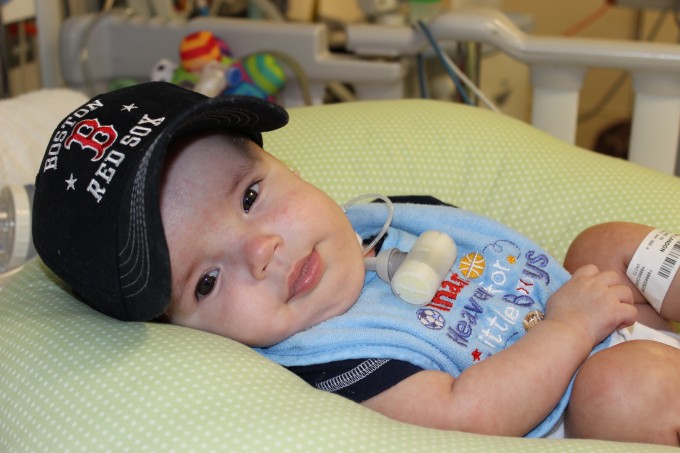Tiny Breaths, Big Responsibility:
Respiratory Therapy for Premature Babies

Medical Services are a core part of our continuum of care at Franciscan Children’s. While the services we provide span both inpatient and outpatient, we are perhaps best known for our inpatient post-acute care rehabilitation programs. As an organization, we specialize in both pediatric and pulmonary rehabilitation programs, serving children ages zero to 22 as they recover from illness or injury.
While the causes of the challenges our children face may vary, our goal as caregivers remains the same – to work tirelessly with each child to ensure that they are able to reach their full potential and live their best life.
Babies born before the 37th week of gestation are considered premature, and nearly 15 million “preemies” are born, worldwide, each year*. These babies have an increased risk of complications, as their tiny bodies are still underdeveloped in numerous ways. Unsurprisingly, the risks of complications increase the earlier a child is born, and these babies often require significant, complex medical care.
Most immediate complications are addressed in the neonatal intensive care unit (NICU), but some preemies are transferred to post-acute care hospitals like Franciscan once they’re stabilized. Programs like our Pulmonary Rehabilitation Unit provide services to these babies who need additional time, medical care, and rehabilitative services for recovery after being discharged from an acute care program.
Our Respiratory Therapists are key players on our care team, working each day with our patients to address breathing challenges. With the respiratory system developing in the final weeks of pregnancy, underdeveloped lungs can be a big concern for premature babies.
In honor of November being Prematurity Awareness Month, we asked Tom Murphy, Director of Respiratory Therapy, more about the importance of Respiratory Therapy for premature babies.
What are the responsibilities of a Respiratory Therapist (RT) at Franciscan Children’s?
Responsibilities of RT’s at Franciscan include Airway management and both non-invasive and invasive ventilator management, medication administration, administration of secretion mobilization and clearance devices such as the Vest machine and Cough Assist machine, patient and family teaching, and emergency response.
Why is Respiratory Therapy a core piece of post-acute care for premature babies?
Premature babies’ lungs are undeveloped and in some cases can be dependent on prolonged ventilator and oxygen support. Their lungs need time to grow and heal, so they need our support. Some babies will have artificial airways (tracheostomies) that connect to a ventilator that helps them breathe. As they become stronger, they often need help weaning from their ventilator and from oxygen support. Some babies also have specialized appointments at other area hospitals, like Boston Children’s, so we provide specialized transport ventilation to and from those hospitals.
How is caring for a premature baby different from caring for other children?
Premature babies use a lot of energy to breathe, especially while they are feeding, so they may need more oxygen at various times. If mechanically ventilated, preemies may require more sophisticated ventilators than older children.
How do RTs work closely with families of premature babies?
Respiratory Therapists are part of the team of health care providers that meet with families upon their admission to Franciscan. They answer questions and help to coordinate the care plan for the baby’s stay, including family teaching plans. RTs also attend subsequent meetings during the course of a patient’s time with us, especially for those who have artificial airways and ventilator needs. The staff RT spends a lot of time meeting with and teaching family care-givers how to care for their child who needs breathing assistance.
What is the most rewarding part about caring for premature babies?
The most rewarding part about caring for premature babies is seeing them grow and wean off ventilator support and go home with their family.
If you could have one super power, what would it be?
If I had a super power it would be that every baby was born healthy in order to live an independent and happy life.
To learn more about our Respiratory Therapy program, please click here.
To learn more about our Pulmonary Rehabilitation program, please click here.